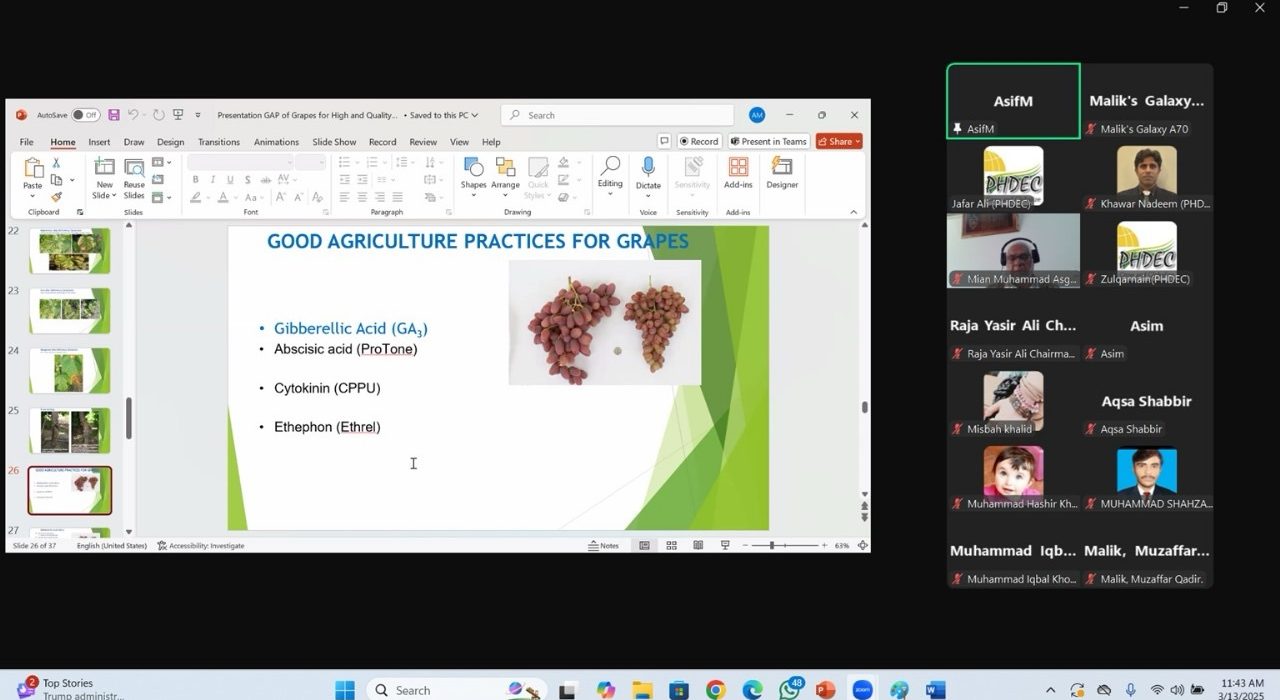Cherry Orchard Management Techniques (GAP) for Premium Quality & High Yield
(26 March, 2025), PHDEC organized a webinar on the topic of “Cherry Orchard Management Techniques (GAP) for Premium Quality & High Yield”. The cherry blossom season in regions like Hunza, Gilgit, Skardu, Ghizar, Quetta, Pishin, Ziarat, Kalat, Zhob, Mastung, Loralai, Swat & Chitral usually starts around March and extends into April. So, keeping in view the ongoing cherry blossom season and upcoming fruiting season of the product, PHDEC chose this time frame to educate the cherry farmers/growers, key farm workers on the subject. Mr. Zulfiqar Ali Ghazi, Value Chain Expert in horticulture products especially in cherry sector of GB was invited to enlighten the small holders of cherry on Integrated Pest and Disease Management, Pruning and Canopy Management, Disposal of Infected Plant Material, Post-Harvest Activities & Overview of GAP certification process for premium quality yield.










